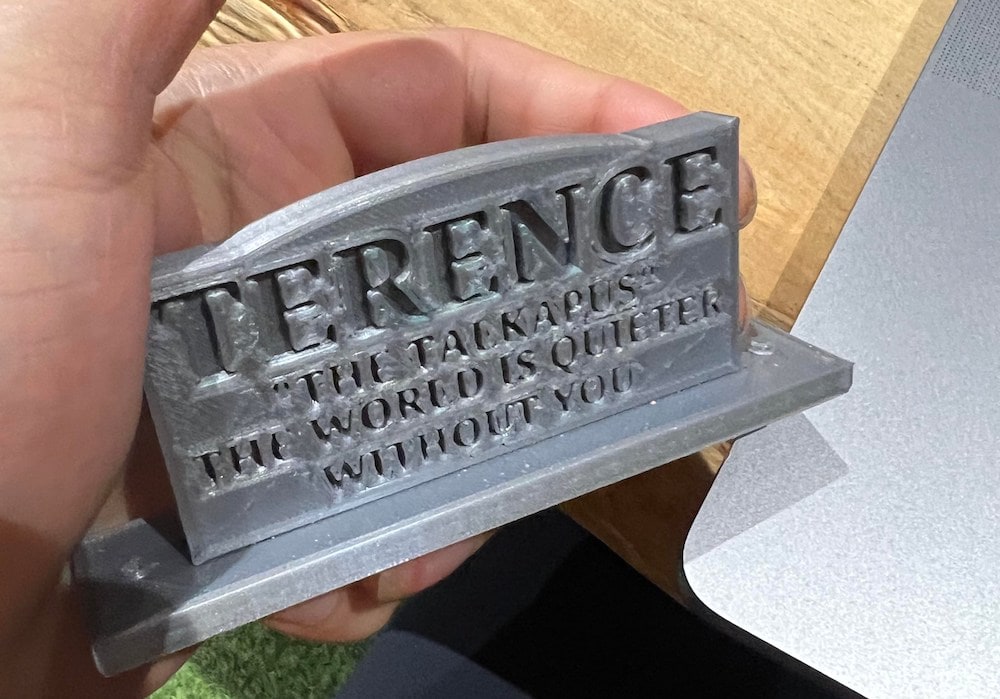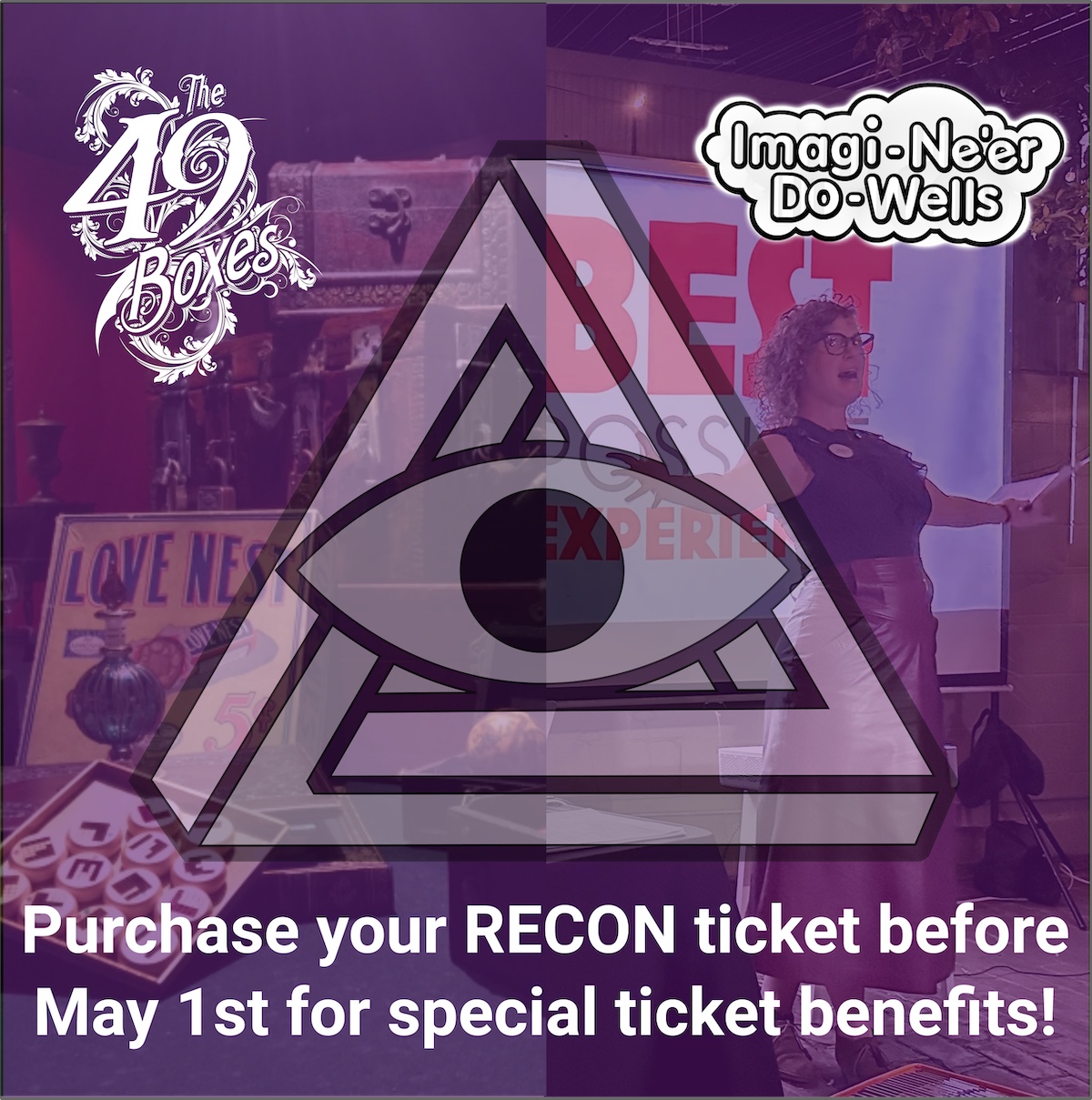In Season 5, Episode 1, David and I chat with Nick Moran, the creative genius behind the large-scale, immersive open-world concept Phantom Peak. Nick takes us on a journey through his thought process of moving away from traditional escape rooms towards creating a more customized and interactive experience.

Phantom Peak combines elements of immersive theater, LARP, theme parks, and escape rooms to create a unique and unforgettable experience. With different story trails, puzzles, carnival games, bars, and side quests, there’s something for everyone, and with four different seasons each year, this experience is designed to encourage repeat visits.
One of the things that really stood out to me about Nick’s approach is his dedication to creating fully-fledged characters with real backgrounds and motivations, rather than just functional actors who drive the story forward. He also talks candidly about some of the challenges he faces, especially with his Kickstarter campaign for Spectre and Vox. Finally, Nick gives a little teaser on the status of his iconic escape room Time Run, and whether it will make a triumphant return.
Thank You to Our Sponsors
We are immensely grateful to our sponsors this season: Morty App, Resova, and RECON: The Reality Escape Convention. We truly appreciate your support of our mission to promote and improve the immersive gaming community.
Morty
Morty is a free app for discovering, planning, tracking, and reviewing your escape rooms and other immersive social outings.
Special Badge for REPOD listeners:
You can learn more at MortyApp.com/REPOD to sign up and get a special badge for our listeners (works for existing users also).
Resova
Resova is your all-inclusive software for bookings, made specifically for escape rooms, offering robust booking management, waiver management, integrated point of sales systems, and follow-up emails. Resova is the ultimate online reservation software designed to elevate the guest experience, increase game master efficiencies, drive sales, and improve operations.
Special Offer for REPOD Listeners:
Sign up with our link at Get.resova.com/rea and receive up to $100 with a Google Ads gift card.

RECON: The Reality Escape Convention
Escape room conventions should be as fun, collaborative, and immersive as the games we celebrate.
RECON is our very own escape room and immersive gaming convention. Whether you’re an owner, creator, player, or you’re escape room curious, you are invited learn, connect, and play with our wonderful community.
RECON Remote 23 will take place August 19 – 20, 2023, online.
RECON 24 will be in person.
Topics Discussed in this Episode
- [03:12] David plays a snippet from Nick’s interview with us on Season 2, Episode 2, recorded a few years ago, where Nick talks about wanting to move away from escape rooms towards more open-world experiences. He says this will allow for a more customized experience for different types of players, along with solving some issues with throughput.
- [05:31] Nick talks about how this mindset gave rise to Phantom Peak, his new open-world concept that combines escape rooms, immersive theater, elements of LARP, and elements of a theme park.

- [09:02] Nick tells us about Phantom Peak. It’s a steampunk Western town that you explore with the help of a web app, various computer terminals, and live actors. There are different story trails along with puzzles, carnival games, and side quests. It works seasonally, so there are four seasons each year with different storylines. There are also restaurants and bars.

- [12:20] Nick tells us a little bit about how seasons work in Phantom Peak, and how changes from previous seasons will persist into the next season. It roughly mirrors our seasons of the year. Each show culminates in a closing ceremony that ties together some of the various storylines you might discover.
- [16:38] Nick talks about the many storylines there are to discover at Phantom Peak. He says that ten storylines are the sweet spot because a guest can see everything in two visits. He shares tips for the best way to maximize your experience.
- [19:01] Nick talks about the quality of the actors at Phantom Peak and the level of dedication they have, including remembering the names of guests, creating memorable moments, and building relationships with the guests.
- [20:44] David talks about his experience with the actors and mentions how distinct each character was. Nick talks about the importance of designing characters with fully-fledged backgrounds and motivations.
- [22:31] Nick says that too many times, actors in open-world shows tend to feel more functional, only designed to drive the story forward. He talks about putting in the work of creating fully-fledged characters. Peih-Gee mentions that boring characters end up only being “quest dispensers.”
- [26:03] Nick tells us how trails work at Phantom Peak, and he walks us through one of them. He mentions that puzzles are poor storytelling devices, and says there aren’t many puzzles. Rather, it’s more about digging through archives and talking to characters. It’s usually about a character that wants something, and you go on a journey to figure out what that is, and how to get it, while navigating a series of obstacles.
- [29:49] David mentions that Phantom Peak is less about puzzles and more interaction based, with light social engineering. Nick tells us about how his stance on puzzles has loosened up after working on Phantom Peak. He still thinks they need to be more than arbitrary obstacles in a room, and that they should be used to build the world, at least, if they can’t help build the story.

- [32:2]1 David talks about the illusion of agency in the world of Phantom Peak. Nick talks about how the audience shares the ending finale stories.
- [35:16] Nick tells us about some of the complexities of running an open-world concept. While it has a larger throughput, it requires a much larger staff. They have also committed to creating four different seasons per year, with ten different trails in each season.
- [37:18] So much of Phantom Peak is written by Nick, in his distinctive voice and style. David mentions that writing is the core of what makes Phantom Peak successful. Nick talks about the difficulties of scaling and expanding when the creative direction is so tightly controlled.
- [40:14] David commiserates with Nick about letting go of some creative control when scaling up in order to extend business capacity.
- [44:29] David asks Nick about plans for expansion or new locations. Nick talks about wanting to bring Phantom Peak to the United States. He mentions that immersive shows reward extroverts and that because Americans are generally more outgoing, he thinks it will do very well in the U.S.
- [45:34] Nick talks about maintaining the quality of the experience when opening new locations. He says the secret is putting in the proper writing foundation. He says that well-written characters and storylines can carry even bad actors when you have good mechanics in place. His number one piece of advice is to hire a quality writing team.
- [48:06] Nick goes on to talk about figuring out where your priorities are, and where to focus your budget and team. He says that his priority for Phantom Peak was the mechanics and the storyline.
- [48:38] Nick talks about the reception of Phantom Peak from the escape room world. He says it’s been a good response, but there are struggles with helping escape room enthusiasts realize that it’s not going to be as puzzle-focused as an escape room.
- [51:0]4 Nick talks to us candidly about his struggles with fulfilling the Spectre and Vox Kickstarter. Due to the rise of material costs and shipping costs, he tells us that every package is actually now losing money, and talks about some of the mistakes he made on this project. Nick says he’s pushing through and hopefully has turned the corner on this project. He is looking forward to fulfilling this Kickstarter.
- [57:32] Peih-Gee and David talk about the difficulties that Kickstarter creators face, and how to manage expectations when supporting creators on Kickstarter.
- [59:15] Nick gives us a little teaser on the status of his iconic escape room, Time Run, and whether it will make a triumphant return.
- [1:04:04] Nick tells us a bonus story about receiving a very special gift from a fan.


Leave us a voicemail
Got a question or thought for the podcast? You can submit a voice recording by calling the Room Escape Artist not-so-hotline that always goes straight to voicemail (551-227-7273).
Resources Mentioned in this Episode
- Nick Moran’s first interview on REPOD, S2E2
- Phantom Peak
- Spectre and Vox, Interview with Nick
- REA review of Time Run: Celestial Chain
- REA review of Time Run: Lance of Longinus
About Nick Moran

Nick Moran is the creative director of Phantom Peak. He is the former creative director of Time Run, where he wrote and led the design of two award-winning games (The Lance Of Longinus and The Celestial Chain.) After that he early designed and launched Sherlock: The Game Is Now, which he co-wrote with Steven Moffat and Mark Gatiss, based on the eponymous BBC TV show.
Support REPOD
- Subscribe to Patreon for bonus content.
- Support Perplexor’s Puzzles and REPOD by using our affiliate code “REPOD” for 10% off purchases.
- Please rate and review our podcast!
Thanks for listening!
Support Room Escape Artist’s Mission
There are lots of ways to support Room Escape Artist, like buying from Amazon or Etsy after clicking into the links included in this post or backing us on Patreon.
The money that we make from these helps us to grow the site and continue to add more value to the community that we love so much.




![The Paper Labyrinth : The Power of Four [Hivemind Review]](https://roomescapeartist.com/wp-content/uploads/2024/03/paper-labyrinth-power-four-1.jpg)
![Rock City Escape – Poppet [Review]](https://roomescapeartist.com/wp-content/uploads/2024/03/rock-city-escape-poppet-2.jpg)

Leave a Reply